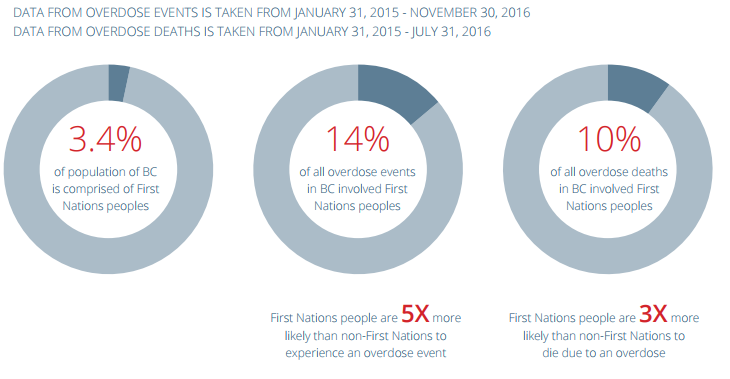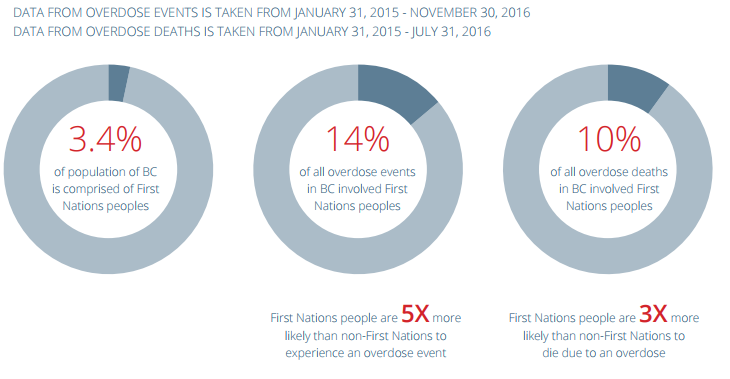A new report finds that B.C.’s First Nations population is bearing the brunt of the overdose crisis.

The report from the First Nations Health Authority titled “Overdose Data and First Nations in BC: Preliminary Findings” found 14 per cent of overdose deaths in B.C. were First Nations people.
That’s far above the 3.4 per cent of the population they make up.
The report also found First Nations people in B.C. five times as likely to have an overdose, and three times as likely to die from one.
Unlike the general population, where men make up nearly three quarters of overdose events, among First Nations people, the split is nearly even at 52 per cent men and 48 per cent women.
The report finds several root causes for the startling numbers, including racism, inter-generational trauma, and reduced access to mental health and addiction treatment for First Nations people.
Grand Chief Doug Kelly, Chair of the First Nations Health Council, said he’s not surprised by the statistics.

Get weekly health news
“You cannot solve a problem by denying it,” he said. “You cannot solve a problem by yelling at it. And I’ve tried, Lordy I’ve tried.”
B.C.’s new Minister of Mental Health and Addictions Judy Darcy said creating an effective response is the next big challenge.
WATCH: Judy Darcy speaks at a press conference Thursday after new data is released on the impact of the overdose crisis on First Nation communities.

She said one area to look at expanding is the peer support model, in which people with lived mental health and addiction experience are trained to guide others through the recovery process.
“In the few days that I’ve spent visiting people on the frontlines of this crisis, I’ve learnt about the incredible work peer support workers do,” Darcy said.
“When I was at the overdose prevention site, I saw peer support workers who were actually involved in saving a life.”
The report also recommends the development of “culturally safe” health and social services, efforts to re-engage at-risk First Nations populations with their land and culture, and redoubling harm reduction efforts.
The province’s chief coroner, Lisa Lapointe said the province is working on collecting more data, but that it is difficult amid an overdose crisis that has staff run off their feet.















Comments